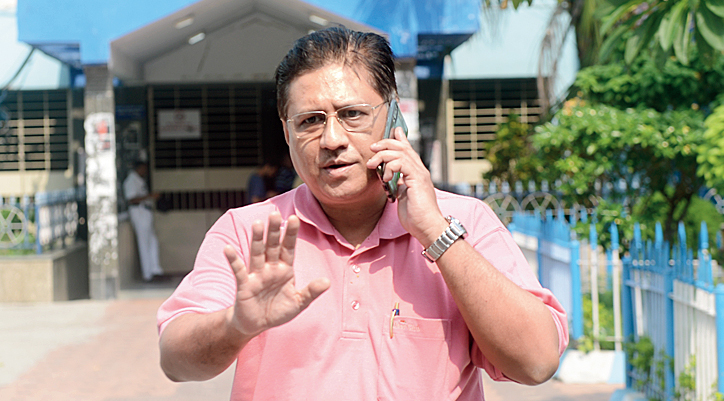A senior doctor who had studied at Calcutta Medical College and Hospital watched chief minister Mamata Banerjee’s meeting with junior doctors on television. Gautam Mukhopadhyay, surgical oncologist and secretary of the Bengal Oncology Foundation, spoke to Sanjay Mandal of The Telegraph on the key issues raised and those he had expected to be raised.
This meeting was long overdue: the junior doctors and the chief minister needed to meet to end the cease-work. If this had happened earlier, fewer patients would have suffered. But better late than never.
Many issues got highlighted at the meeting that had not been discussed in such an open forum before.
Security
The state government has sought one to two weeks to increase security at all the government hospitals. It was decided to have nodal police officers for all hospitals in Calcutta and the districts.
This will need follow-up publicity, preferably through government websites and social media.
The junior doctors said they were tired of working under duress and fear. A new point was raised — that they want enhanced security at night when most of the attacks happen. The demand for the presence of female security officers round the clock is also important. This had never been discussed before.
The meeting discussed the creation of a rapid action team for hospitals, especially at the district level, with proper coordination between the police and the administration. This can ensure enhanced security.
The chief minister also mentioned the need to stop the entry of outsiders. This is an important step that should be implemented immediately.
Crowded emergencies
The chief minister’s offer to install collapsible gates at hospital emergencies and not allowing more than two people to accompany a patient is welcome. If this can be done, I feel the problem will decrease.
It’s been common practice for multiple relatives of a patient to crowd the emergency wards since we were junior doctors in the 1980s. The administration was never able to stop this. I hope they succeed this time. The bigger the crowd, the more the chaos and the possibility of violence.
Grievance cell
Upgrading the grievance cell (where patients can lodge complaints against the doctors, other staff or any facet of the hospital service or infrastructure) was discussed, which I think is crucial.
The chief minister acknowledged the problem and mentioned how the lack of signage causes the patients to often miss it. The grievance cell can help reduce the number of assaults.
Communication
The chief minister offered to appoint specially trained public relations personnel in hospitals to communicate the decisions of the doctors. Often, the problem occurs because of a lack of proper communication between the doctors and the patients’ relatives. The trained public relations personnel can make a difference here. Awareness meetings between the doctors and the patients and their relatives would be a good idea too.
Infrastructure
The chief minister emphasised that while the infrastructure had improved in government hospitals over the past few years, the same could not be achieved in terms of human resources (the number of doctors). The doctors raised the subject of inadequate infrastructure at the primary health centres and the lack of security there. The junior doctors’ workload can be reduced only when the human resource issue is settled.
Legal
The chief minister said that no cases had been registered against the doctors in connection with the strike. The junior doctors demanded the implementation of the laws against assaults on them (the law makes such attacks a non-bailable offence).
They also highlighted the requirement for a legal policy on such assaults, which means the government should educate them about what legal steps it --- and they --- should take when there’s such an attack or a threat of it.
Political interference
Interference by political leaders (over admission for favoured patients, preferred cabins, VIP treatment) was one of the most important points raised by one of the junior doctors. It was said that political interference was happening in the cities too, though it’s mostly seen in the districts. The chief minister too acknowledged this.
What i had expected them to discuss
There should have been a discussion on how to prevent the majority of patients being referred to Calcutta’s medical colleges, a trend that puts immense pressure on the doctors here. This is an old problem and the junior doctors had the opportunity to discuss it with the chief minister.
There should have been a discussion about police stations being set up at medical colleges (now there are only police outposts).










